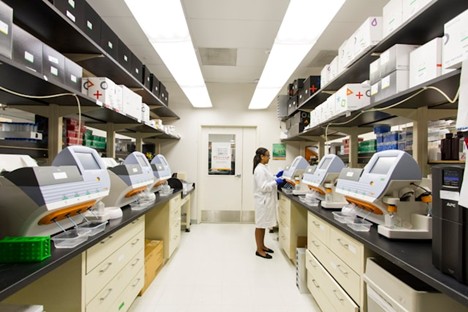
In the field life sciences, technical expertise and scientific knowledge are essential but they’re no longer enough on their own. Increasingly, hiring managers and industry leaders as well as any experienced recruiting firm are placing significant value on soft skills like communication, adaptability, emotional intelligence, and problem-solving. These interpersonal competencies are often the deciding factor in who gets promoted, who leads teams effectively, and who thrives in cross-functional roles.
Whether you’re a research scientist, regulatory affairs specialist, biotech sales representative, or pharmaceutical executive, your ability to collaborate, influence, and lead with clarity can be just as critical as your technical skills.
Life sciences is a multidisciplinary field encompassing biotechnology, pharmaceuticals, medical devices, diagnostics, and healthcare services. As scientific innovation pushes the boundaries of medicine and technology, the complexity of projects, regulatory frameworks, and cross-functional collaboration continues to grow. Here’s why soft skills have become crucial:
Projects in life sciences often involve teams from diverse backgrounds: scientists, engineers, clinicians, regulatory experts, marketing professionals, and more. Effective collaboration across these specialties demands strong communication and teamwork skills to ensure goals are aligned, deadlines are met, and knowledge is shared effectively.
Scientific challenges rarely have straightforward solutions. The ability to think critically, creatively, and collaboratively enables life science professionals to tackle complex problems, innovate processes, and adapt to rapidly changing circumstances.
Whether explaining complex research data to non-scientific stakeholders or writing regulatory submissions, life sciences professionals must tailor their communication style. Clarity, empathy, and persuasion are vital to influence decisions and foster understanding.
With experience, many life science professionals move into leadership roles where managing teams, mentoring junior staff, and navigating organizational politics require emotional intelligence, conflict resolution, and decision-making skills.
The life sciences sector faces constant regulatory updates, technological breakthroughs, and market shifts. Professionals who can adapt quickly and maintain resilience have a distinct advantage.
While technical skills provide the foundation, the following soft skills often define career trajectories:
Clear verbal and written communication is indispensable. Life sciences professionals must present data, write reports, and engage with colleagues, regulatory bodies, and clients. Active listening, feedback, and the ability to convey complex concepts simply enhance collaboration and reduce misunderstandings.
The ability to work well within multidisciplinary teams is essential. This includes respecting diverse viewpoints, sharing knowledge freely, and contributing constructively to group objectives. Trust-building and conflict resolution help maintain a positive work environment.
Understanding your emotions and those of others helps in managing stress, building rapport, and navigating workplace dynamics. High emotional intelligence improves leadership effectiveness, especially when guiding teams through challenges or change.
Employers value professionals who approach challenges analytically, consider multiple solutions, and make data-driven decisions. Creativity also plays a role when standard procedures fail or innovation is needed.
Life science projects often have strict deadlines and regulatory timelines. Managing time efficiently, prioritizing tasks, and maintaining organized documentation are key to success.
The industry evolves rapidly. Professionals who embrace change, pursue continuous learning, and quickly apply new knowledge can stay ahead of the curve.
Strong leaders inspire, motivate, and develop others. Leadership skills include strategic thinking, delegation, conflict resolution, and fostering an inclusive culture. Mentorship helps retain talent and build team capacity.
The impact of soft skills in life sciences goes beyond day-to-day work—they are often decisive factors in promotions, hiring decisions, and professional reputation.
Soft skills enhance collaboration and communication, reducing errors, delays, and costs. Projects delivered on time with clear reporting are more likely to succeed and gain recognition.

Networking and relationship-building are critical for career growth. Professionals with strong interpersonal skills attract mentors, sponsors, and collaborators who can open doors to new opportunities.
Technical expertise alone rarely propels professionals into management. Demonstrating leadership qualities and emotional intelligence signals readiness to take on greater responsibilities.
Companies prefer employees who embrace change positively, helping teams adapt and innovate rather than resist new ways of working.
Soft skills contribute to a positive workplace culture, job satisfaction, and reduced burnout - all factors that improve long-term career stability.
If you recognize the importance of soft skills but feel underprepared, there are many ways to improve:
Regularly ask colleagues, supervisors, and mentors for constructive feedback on communication, teamwork, and leadership styles.
Enroll in workshops, online courses, or seminars focused on communication, emotional intelligence, time management, and leadership development.
Make a conscious effort to listen attentively in meetings and one-on-one conversations. Reflect on what’s being said before responding.
Volunteering for interdisciplinary teams can expand your understanding of other roles and improve collaboration skills.
Guidance from experienced professionals can accelerate soft skill growth and provide valuable career insights.
Books, articles, and podcasts on leadership, psychology, and communication can provide practical tips and new perspectives.
Regularly assess your emotional reactions, conflict management, and time use to identify areas for improvement.
As the life sciences field continues to grow and innovate, the demand for professionals who combine deep technical expertise with strong soft skills will increase. Employers are looking for well-rounded individuals who can not only advance scientific goals but also lead teams, navigate complex stakeholder landscapes, and adapt to evolving challenges.
By investing time and effort in developing your soft skills, you position yourself not just as a valuable employee, but as a future leader capable of driving innovation and inspiring others.
In the competitive and multidisciplinary environment of life sciences, soft skills are no longer optional - they are essential for advancing your career. Communication, teamwork, emotional intelligence, and adaptability complement your scientific knowledge to deliver results, foster collaboration, and open new professional opportunities.
If you want to thrive in life sciences, start focusing on your soft skills today. This balanced approach will help you become a more effective, respected, and successful professional in an ever-changing industry.